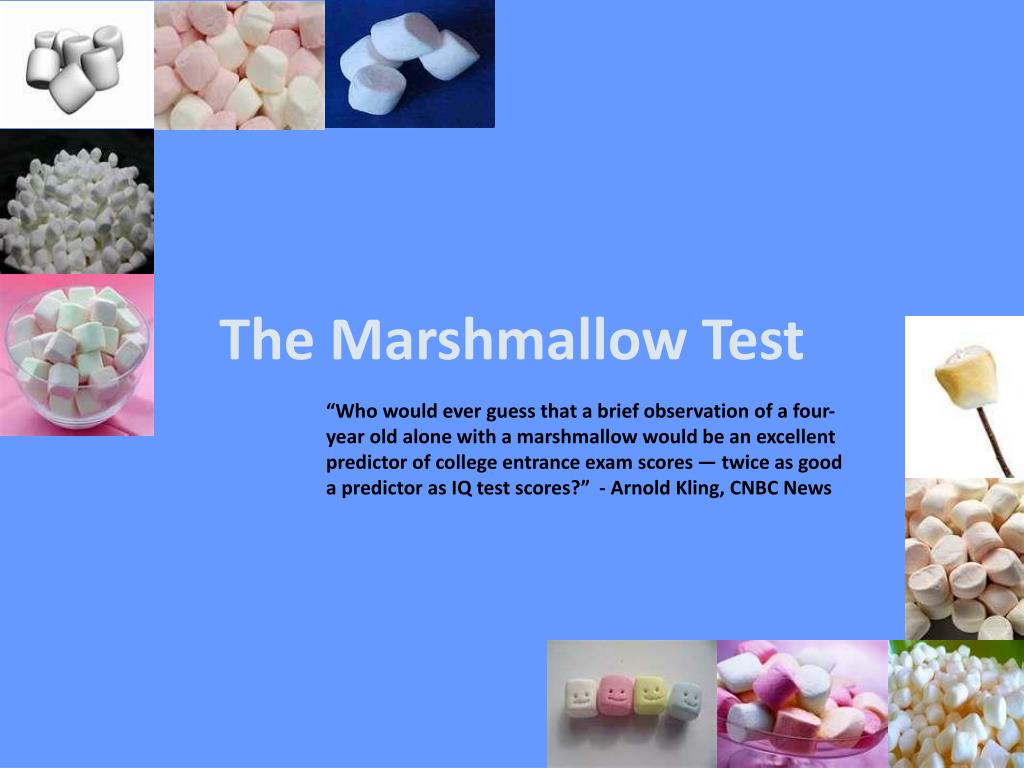


It found the same correlation between later achievement and the ability to resist temptation in preschool, but it was much less significant after the researchers factored in such aspects as family background, home environment, and so forth. AdvertisementĮarlier this year, a study published in the journal Psychological Science that replicated the marshmallow test with preschoolers concluded the picture is a bit more nuanced. Mischel's follow-up study confirmed the correlation. Several years later, Mischel noticed a strong correlation between the success of some of those kids later in life (better grades, higher self confidence) and their ability to delay gratification in nursery school. Roughly one-third of the kids held out long enough to earn a second marshmallow. Some smelled it, licked it, or took tiny nibbles around the edges, hoping the examiner wouldn't notice. Others found a handy distraction: covering their eyes, kicking the desk, or poking at the marshmallow with their fingers. Some kids just ate the marshmallow right away. Then Mischel would leave the room and a hidden video camera would tape what happened next. But if they could wait 15 minutes, they would get a second marshmallow as a reward. He would give each child a marshmallow and gave them the option of eating it immediately if they chose. Mischel's landmark behavioral study involved 600 kids between the ages of four and six, all culled from Stanford University's Bing Nursery School. For example, when faced with the urge to smoke or a choice between arguing versus compromise, Mischel recommended keeping a goal in mind and focusing on the consequences of losing self-control." The tactics used by the youngsters to distract themselves had implications for delayed gratification in adults. In it, he describes his groundbreaking studies of young children in the 1960s and 1970s, during which they were given the choice between receiving one immediate treat and receiving two treats 15 minutes later. He is the author of the popular book The Marshmallow Test: Mastering Self-Control. "Professor Mischel is revered for his work in self-regulation.

Walter Mischel, emeritus professor of psychology at Columbia University and self-proclaimed "Marshmallow Man," was 88. The psychologist who famously demonstrated the importance of being able to delay gratification to achieving later success in life died on September 12 in New York City.


 0 kommentar(er)
0 kommentar(er)
